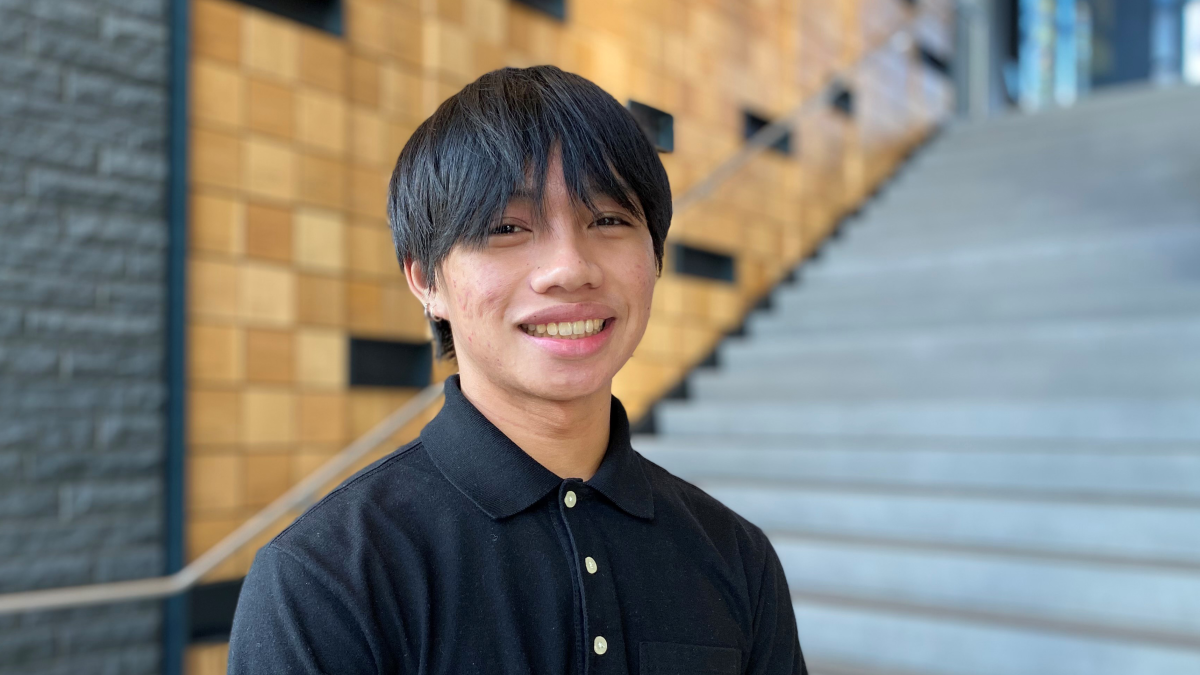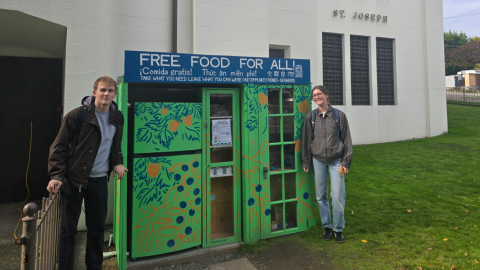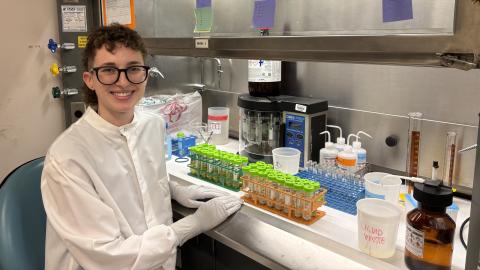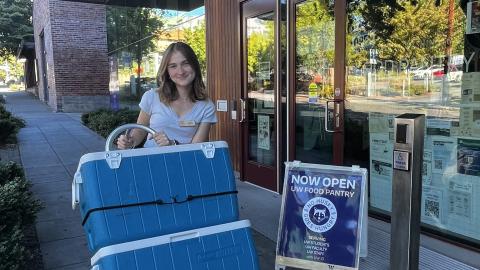Sean Atijera
BS, Environmental Public Health
Hometown
Mill Creek, WA
“Our department wants us to be ready for our careers. It’s a small program, but they do put a lot of effort into preparing us.”
- Sean Atijera
Going from a small, 20-person classroom to a massive lecture hall wasn’t easy for Sean Atijera, but the environmental public health major doesn’t regret his decision to switch gears and transfer to the University of Washington.
“At times it felt overwhelming — all the resources available to me, all the other students, all the faculty,” he said. “I didn’t know where to start.”
After two years of studying environmental engineering at Cascadia College in Bothell, he transferred to the UW.
Thanks to student organizations and a career-focused undergraduate seminar course, Atijera found his footing. The resources that once intimidated him now feel like the keys to his future.
Career advisers, internships, a vast alumni network, research opportunities. As a student in the UW Department of Environmental & Occupational Health Sciences (DEOHS), he has access to all of this and more.
“I found that being immersed in an environment with more students, alumni and professors really gives me better insight into what kind of career path I want to take, which is environmental public health,” Atijera said.
Major league internship
His focus on career readiness paid off last summer, when he landed an internship at T-Mobile Park, working with the facility’s catering vendor as an environmental health and safety coordinator.
Atijera trained culinary team members to comply with food safety and quality assurance regulations, as well as occupational safety and health procedures. He also designed infographics to be placed throughout the stadium to encourage proper food safety, sanitization and occupational safety.
“Much of what I learned in the program, I was able to apply to this internship,” he said. “Our department wants us to be ready for our careers. It’s a small program, but they do put a lot of effort into preparing us, which is something I really appreciate.”
Big campus, small community
Atijera will graduate in fall 2025 with a bachelor’s of science in environmental public health. He’s made close friends through an engineering student group called The Boring Club, as well as faith-based student groups. In the end, the UW doesn’t seem so gigantic after all.
At his community college, most students commuted, so they didn’t linger on campus. After class they rushed home or ran to feed a parking meter.
“Even though UW has a huge student population, it feels kind of like a small world sometimes, just like a community,” he said. “Even just walking down the street, I see friends and say hi.”




